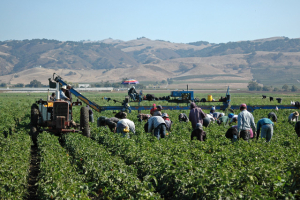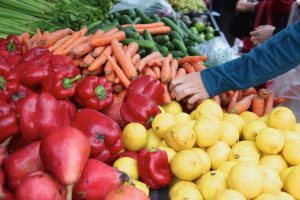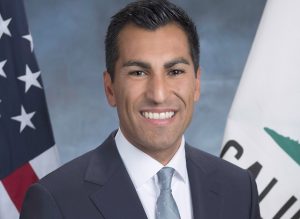Network Blog
January 1, 2008 Michael R. DimockA sustainable food system is the basis for a sustainable civilization. It is fundamental and requires a public focus way beyond that which it currently holds. To create such a system in this state by 2030 will require unprecedented collaboration and unprecedented investment. Exactly how to make that happen no one I know can yet say. The previous work of Roots of Change’s (ROC) with the both the Vivid Picture and Leadership projects and the work of countless other organizations from which ROC has learned have provided important clues, recommendations, and indicators. But these are still only ideas, hypotheses and emergent strategies. It is reasonable that the path remains unclear at this moment because the idea of transforming such a fundamental system through a conscious and organized statewide effort is unprecedented.
We do know some things however. We know for a fact that it will take thousands of leaders to reframe, retool, and reorient the system in order to give millions of people new ways to produce, process, distribute, purchase, prepare, and consume food. We also know that there are many examples throughout history of people working together to create change by re-imagining the rules by which people organized their societies.
We know that some times a change happens slowly and some times quickly. We remember the anti-slavery movement that came to a head with the Civil War and settled the issue of whether this nation would really adopt the principle that all people are allowed equal right. Even though the principle was confirmed and placed in the Constitution, it took a hundred more years to give African Americans full civil rights. (Many among us would argue that economic disparities mean we still have not achieved full equal rights.) In the 1930s, we reoriented and reformed the nation’s economy so that we might avoid another Great Depression. That same moment marked the beginning of the nation’s use of the Farm Bill and new bureaucracies to support the health of the food system. People can and must from time to time reorder their societies. Our goal is to change the food system in one single generation.
The above examples of social change, and most all that I can think of, share a common genesis: crisis. We are in the midst of crisis once again. I believe it will worsen as population continues to expand (we are 6 and on our way to 9 billion on the planet and 36 moving to 50 million in the State by 2030), fossil fuel becomes less abundant, global climate change more extreme, and pollution even more intense. On top of this pile of challenges, the US economy will continue to weaken in relationship to other regions or nations, meaning the number of citizens living in poverty could continue to rise, and public health will continue decline as diet and pollution related disease take their toll. We should act now in order to minimize potential disruption and suffering related to the challenges.
As we know, all crisis means opportunity. Social changes are simply human readjustments in the face of new or newly understood realities. Crisis makes people look deeper to understand more thoroughly the human role in the web of life. Fortunately, science (both physical and social) has evolved to the point that we may for the first time have the capacity to deal with whole systems, to discern enough complexity, and be patient enough (and perhaps humble enough) to collaborate in a system-altering campaign to become sustainable. The maturing of our culture and the tools of science may mean the moment is right to let go of the limited mental models, which caused the current problems, in favor of new more refined and biologically-based mental models that will allow our State to overcome the crises and sustain itself.
Roots of Change is all about a reorientation of the food system here in California. And because California helps feed the nation and world, our action will create waves of change. This change is potentially a great unifying force. It requires abandonment of all the typical social boundaries because food is a necessity that every human shares. Thus, every ethnic group, every religious belief, every political party, every region, every Californian has a role in the change. ROC’s challenge today is to attract and serve a legion of diverse leaders that reflect the face of California and who share a vision and strategy for transforming the food system. And our work has begun.
This week and next, veteran leaders from the ROC Community are moving around the state engaging hundreds of other leaders to invite them to participate in a campaign to create healthy communities, farms and food. In the blog postings below you will learn more about this effort from my colleagues on the road: Alison Edwards, Nicole Mason, and Jon Ramer.



